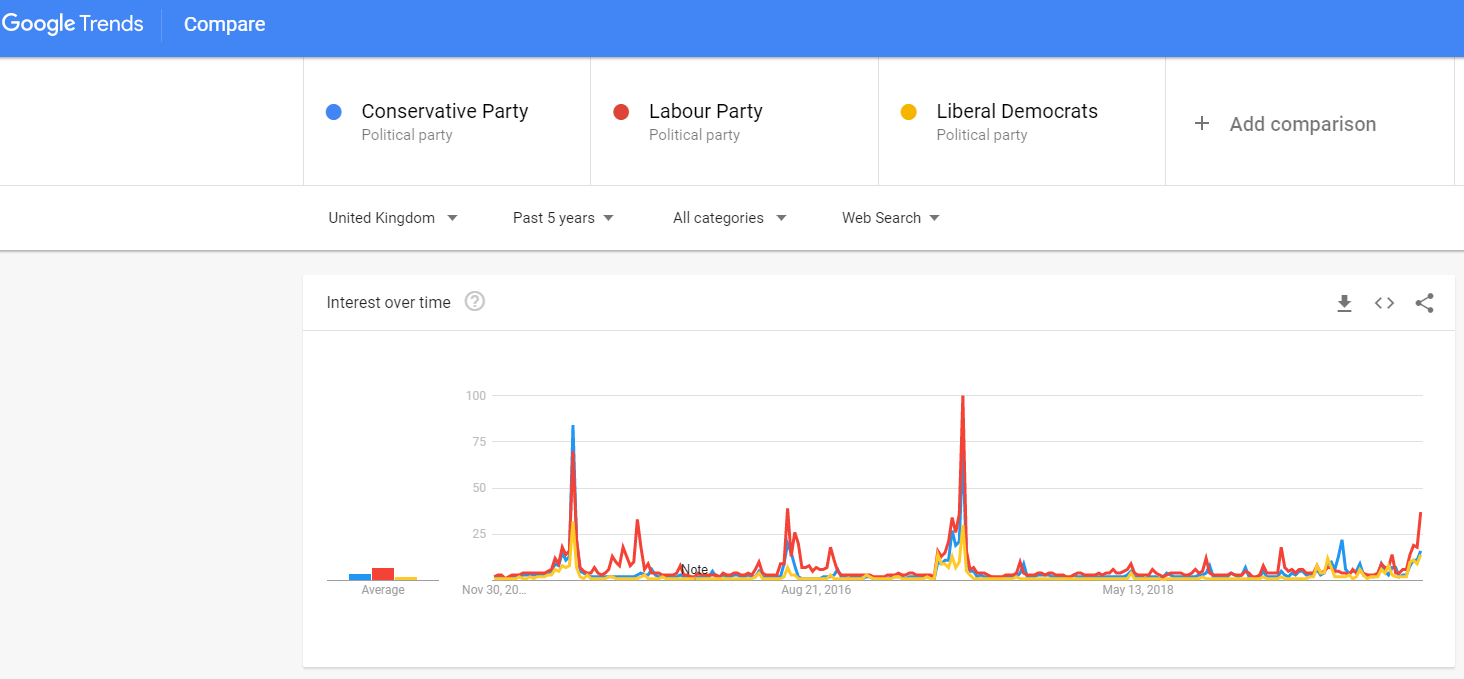Can Labour Win the 2019 General Election? What Does Google Trends Tell Us?
As The Guardian once noted - what we search on Google reveals our darkest secrets. Does it reveal even more than that, how we are going to vote in a UK General Election? Is it a better guide than opinion polls?
Looking at Google Trends suggests that it might be. Here is UK trend data across the three main Great Britain wide Political Parties for the last 5 years, and the correlation is interesting:
May 2015, opinion polls suggested that the outcome would be too close to call and that the election would result in a hung parliament. Google trends showed a healthy Conservative lead in search interest. Result of the election - conservative majority of 12 seats with 36.9% of the vote. 1-0 to Google Trends
June 2017, Theresa May faced the election hoping to win a landslide. Opinion polls consistently showed a strong lead for the Conservative, initially with a 21 point lead. Google Trends shows higher search interest for Labour throughout the campaign. Result of the election - Hung Parliament. Conservative win the popular vote with 42.4% of the vote vs Labour 40.0% share of the popular vote - an increase of 9.6% on 2015. The Conservatives lost 13 seats, Labour gained 30 seats.
This was a shock result, and while Google Trends suggested a potential win for Labour, the polls were nigh on certain of a Conservative landslide. Google trends could have been an indicator of Labour gaining traction, that was not being picked up in the early polling.
Still in our scoring it remains 1-0 to Google Trends.
So, what about 2019? Well, early polling gives a 12 point lead to the Conservative Party, Google Trends shows a lead in Search Interest for Labour. Of course search interest can be positive or negative, but it does suggest that Labour are driving more interest in the UK than their rivals. The Liberal Democrats also seem to be generating more interest than their drop off in the polls might suggest.
Important to note is that the UK runs a “first past the post” system with MPs elected across 650 constituencies. If Labour are to perform above expectations they need to maintain their “Northern Heartlands” and hold and make further gains across the rest of the country. Looking in Google Trends the picture is largely positive, the top 5 cities for interest in the Labour Party are from a good spread of The UK:
Conversely the Conservatives are targeting seats in those traditionally Northern Labour constituencies, so would want to see large search interest developing there. This unfortunately is not supported so far by Google Trends data, with top search interest concentrated heavily in the South East:
What do you think, can the search interest Labour are driving translate in to votes on election day? Their campaigning so far is undoubtedly cutting through in terms of interest.
Data taken from: https://trends.google.com/trends/?geo=GB


